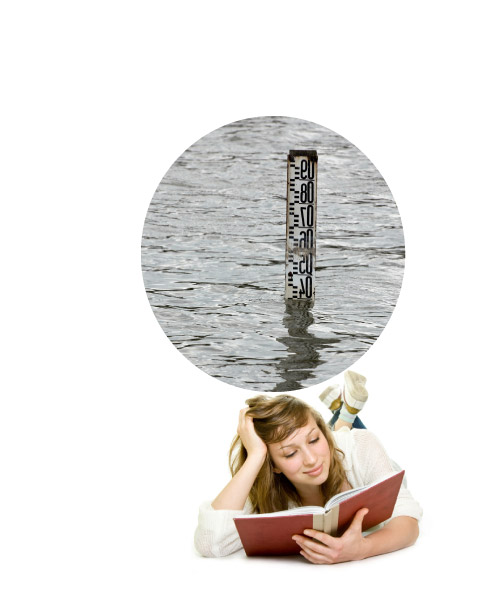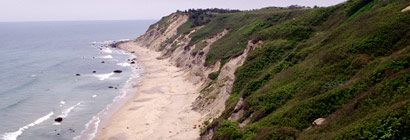
Rising Seas
As the Earth heats up, sea level rises because warmer water takes up more space than colder water. This process is known as thermal expansion. Melting glaciers and ice sheets worsen the problem by adding even more water into the oceans.
Rising seas can erode shorelines, make floods more severe, contribute to wetland loss, and allow salt water to enter bodies of fresh water. In some cases, floods could even force people to leave their homes and move elsewhere. If large numbers of people have to move to new areas, it could cause conflict in some countries. Go on an expedition to the Maldives to learn more about rising seas and climate change.
Learn about who is most affected and some of the things that we can do to prepare now and in the future:
Rising Seas

Who Is Most Affected?
- People living in coastal communities
- Tourists and beachgoers
- Businesses that depend on tourists
To Deal With Flooding...
- Use protective barriers like sandbags around buildings and roads
- Have an evacuation plan ready, and evacuate if ordered
To Prepare for the Future...
- Preserve wetlands and floodplains that protect coastlines from flooding and damage
- Protect barrier beaches and reduce erosion
- Improve drainage systems
- Elevate existing structures or build protective barriers in certain places
- Build houses further from the shoreline and other areas that could flood easily
Climate Challenge!
- How many miles of coastline does the United States have? Reveal answer
- 95,000
- 75,000
- 50,000
A
- About what percentage of Americans live in counties along the coast? Reveal answer
- 40
- 50
- 60
B
- I am an ancient species. I basically have not changed for more than 350 million years! One of the places where I lay my eggs is on the sandy beaches along Delaware Bay. The sea level is rising here, and my beaches are getting smaller. By the way, I'm related to spiders. What am I? Reveal answer
Horseshoe crab